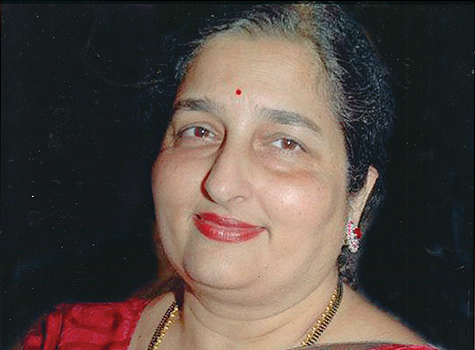By Parul Kharod

Everyone wants to be healthy, but what does that mean?
The World Health Organization created the following definition of health in 1948: Health is a state of complete physical, mental, and social well-being and not merely the absence of disease or infirmity.
In 2017, a group of researchers concluded that the above definition was outdated based on the current needs. They devised this new definition of health, which is a mouthful to be honest: “a holistic state of physical, mental, emotional, and social wellness supported by an integrated and technologically sophisticated healthcare delivery system tailored to meet the entirety of a patient’s medical needs, including disease prevention and management of undesirable conditions, comorbidities, complications, and unique patient circumstances”.
Regardless of the definition used, unfortunately, we are not practicing health care. We are actually doing disease care. People get sick, they go to the doctor to get treated for their illness. We are not doing anything to prevent that disease from happening in the first place. The day we all start focusing on prevention, that is when we will start doing health care in the true sense.
The month of May has many National Health Observances
Ӣ Arthritis Awareness Month
Ӣ National Osteoporosis Awareness and Prevention Month
”¢ National Women’s Health Week – celebrated starting Mother’s Day
Ӣ National Physical Fitness and Sports Month
Ӣ Mental Health Awareness Month
Ӣ Older Americans Month
Ӣ Better Sleep Month
All these observances are created to raise awareness of the diseases in order to find more funding for research for better treatment options. And, no doubt, we have come a long way in the treatment of major diseases. There have been many scientific breakthroughs and technological advances with medicines and robotic surgeries. There has not been as much focus on prevention.
The medical and insurance industry has been focusing on this disease care, but things are changing for the better. A group of physicians a few years ago decided to do something about this disparity, and created a specialty called Lifestyle Medicine.
Lifestyle medicine is a medical specialty that uses therapeutic lifestyle interventions as a primary modality to prevent and treat chronic conditions. Lifestyle medicine certified clinicians are trained to apply evidence-based, whole-person, prescriptive lifestyle changes to treat and, when used intensively, often reverse such conditions.
How to be healthy and prevent disease? Focus on these six areas:
1. Nutrition
Healthful eating is to focus eating a whole food plant-based – meaning majority of your calories should be coming from unprocessed or minimally processed foods such as fruits, vegetables, whole grains, and pulses and legumes.
The Blue Zones Project, conducted by Dan Buettner of National Geographic, went around the world to identify the regions with the greatest number of centenarians (people who live to be 100 years old). A common theme was that 95 percent of their diet was plant-based diet among these regions. You can look up the Blue Zones documentary film called Live to 100 on Netflix.
Foods to avoid include all processed and especially ultra-processed foods that have artificial colors, chemicals, additives, and preservatives. These typically include packaged foods, frozen ready to eat foods, and fast food.
2. Physical Activity
Physical activity refers to aerobics, strength, flexibility, and balance. Regular physical activity improves heart health and improves mood. Recommendations for adults 18-64 years old: at least 150-300 minutes of moderate intensity, or 75-150 minutes of vigorous activity weekly along with two or more days weekly of strength training. Avoid sitting for long periods of time.
It is important to incorporate movement regularly throughout the day. Sitting is being called the new smoking. It’s not just about exercise; it is the ability to live a long healthy life without aches and pains, and risk of falling and fractures.
3. Sleep
Restorative sleep is important for the body to rest and repair. It is recommended to get undisturbed sleep for about seven hours. Our sleep cycle is closely associated with our metabolism. Studies show that people who do not get adequate sleep may gain weight or find it harder to lose weight. Early to bed and early to rise seems to be the key to good health. Our internal clock or Circadian Rhythm is closely associated with the sun. So, get into the habit of sleeping and waking up at the same time, and avoid staying up late at night.
4. Stress
Studies show that stress can cause short term memory loss! Stress is also associated with gut imbalances and related to food allergies and intolerances, GI issues such as gas, bloating, constipation, diarrhea, and hormone imbalances. Stress can cause chronic inflammation. It is important to identify stress and learn how to cope with it. Try yoga, meditation, deep breathing exercise, and any other methods needed to help manage stress. Talk to a therapist or psychologist if needed.
5. Social Connections
Neurological research studies show that positive social connections are more powerful than playing sudoku to improve brain health and prevent dementia. The Blue Zones study showed that social support, higher purpose and spirituality are very important to longevity, wellness, and healthy aging.
6. Harmful Substances
It is now well known that smoking is seriously harmful to the body. The same can be said for alcohol and drugs. Studies are showing a strong link between alcohol consumption and increased risk of cancer. Even one glass of wine can significantly increase a woman’s risk of breast cancer. We also need to stay away from other harmful substances like pollutants, pesticides, and other chemicals and preservatives.
Even small changes go a long way! So rather than thinking about diets for weight loss or any particular disease, focus on improving your overall quality of life.
Parul Kharod is a registered dietitian and licensed nutritionist and works as a Clinical Dietitian. She can be reached at parulkharod@gmail.com



